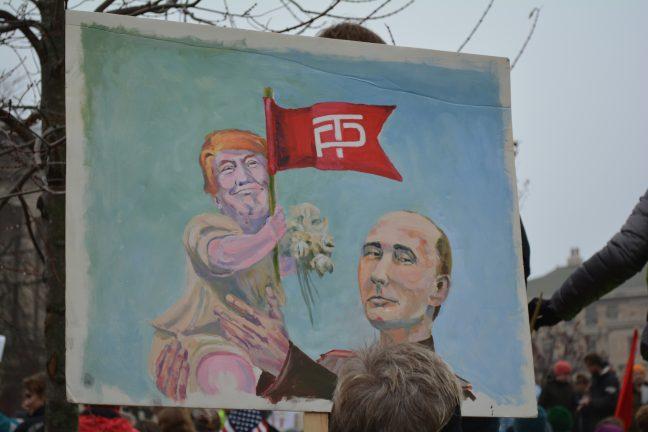Russian President Vladimir Putin is able to wield political power to a greater extent than previous leaders because of the support the country’s constitution gives to the president, an expert in Soviet and Russian politics said at a lecture Thursday.
Graeme Gill, a visiting fellow from the University of Notre Dame, evaluated Putin’s “super-presidentialism” for the University of Wisconsin’s Center for Russia, East Europe and Central Asia.
The Russian constitution lends power to the office of the president, granting the holder the ability to appoint key officials, sign bills into law, impose vetos, determine national and foreign policy, and issue orders and decrees, Gill said.
“Clearly, the presidency is a powerful institution — at least on paper,” Gill said.
Though Gill said the constitution gives great power to the president, it also sets constraints on the office’s power by allowing impeachment, the overturning of the president’s bills and requiring assent for their appointments.
Gill said the constitution is more balanced than people think, especially for those who argue Russian presidents are examples of superpresidentialism, or highly concentrated presidential power.
“[The constitution] creates a structure. It is up to the incumbent — the president in this case — to mold those,” Gill said.
Gill then compared Putin to Russia’s former president Boris Yeltsin, whom he called a “weak” president.
Yeltsin lacked power because he couldn’t deal with the tasks confronting him and was eventually opposed by those opposing him, Gill said.
Gill explained that Yeltsin’s decision to walk out on the Communist Party in 1989 and later hurt his presidency. After he walked out on the Communist Party, Yeltsin cut a lot of his ties with its leaers.
“He didn’t really try to develop an institutional power base,” Gill added.
Yeltsin simply refused to engage his intuitional power base and tried to make himself seem like the “savior of democracy,” Gill said.
In 1993, Yeltsin closed down the parliament and used the military against the parliament, essentially shutting down his reputation as a savior of democracy. His attempt to create a charismatic perception of himself was similarly shot down due to his poor health, Gill said. He was seen as a drunk, and often people made fun of him for it.
Lacking a clear power base, Yeltsin was soon opposed by most Russians, including the elite, Gill said.
“He became a figure of fun in a way that the president should never be,” Gill said.
Despite apparent declining faith in voter system, vote remains integral, panel says
Putin, on the other hand, is everything Yeltsin wasn’t. Putin is younger, fitter and appears decisive, Gill said. From the surface, he seemed like someone who could “get things done.”
“We’re talking about image, not reality,” Gill said.
Gill said Putin built his own base, linked himself to a party of power and grew his popularity through policies.
According to the Levada Center, Putin was favored by 67 percent of Russians in August of 2018. His favorability peaked at 89 percent in June of 2015.
But Putin has his share of problems going forward, Gill said. For instance, Putin’s policies often don’t reach all of Russia. Typically languishing in Moscow, his ideas are rarely turned into realities.
Putin had also not recognized the need for economic reform until recently. If Russia is to produce a society in which there is growing wealth, their society needs economic reform, Gill said.
Gill was also concerned Putin is or will become a lame duck, or an official in the final period of their term after the election of a successor. This would curtail his political power.
Though it may be too early to tell since Putin was just recently reelected, Gill said “he’ll probably become a lame duck soon.”














